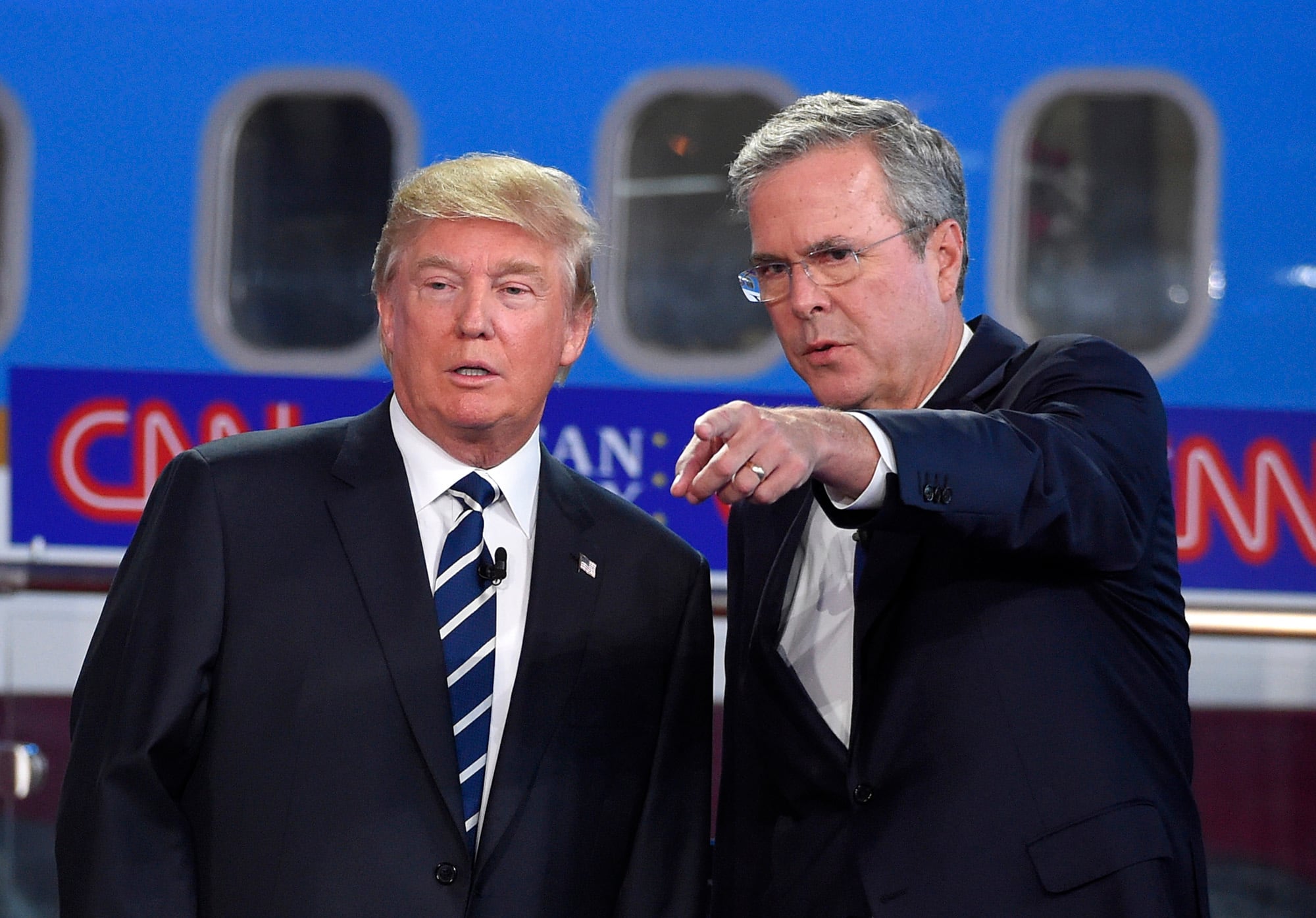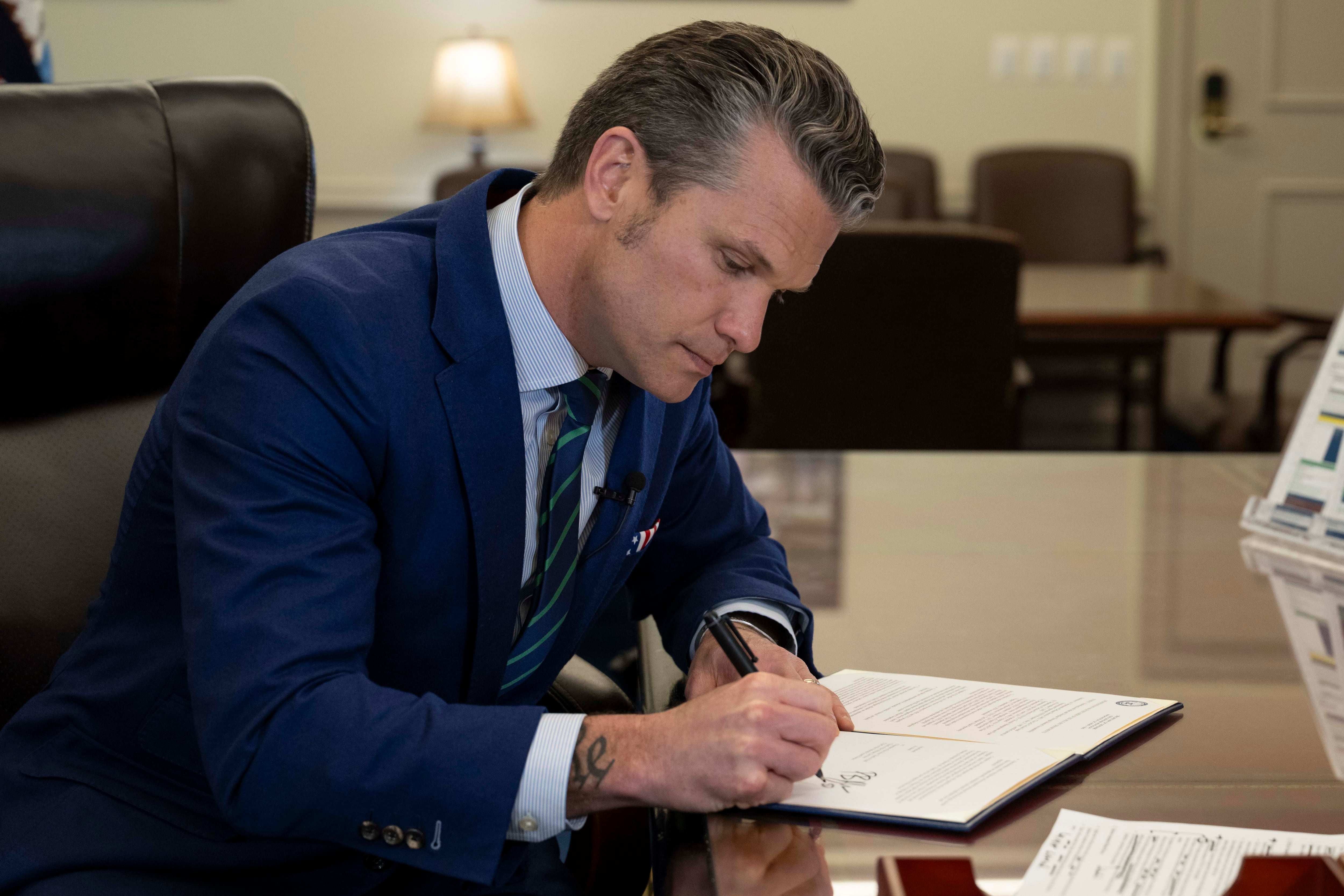Jeb Bush promised "peace through strength." Carly Fiorina offered plans to immediately rebuild the Navy and missile defense systems in Europe. Donald Trump insisted he's a "very militaristic person, but you have to know when to use the military."
Military policy took a more prominent role at the second Republican presidential debate Wednesday night in a campaign so far dominated by immigration concerns, Hillary Clinton's email habits and Donald Trump's personal attacks on his rivals.
The event — 138 days before the Iowa caucuses, the first votes of the 2016 election — featured 60-second responses on a rotating list of topics from the top 11 candidates in the early polls.
Nearly all of the candidates accused President Obama of making the military and the country’s security weaker, citing with his policies on Iran, Russia, Syria and Afghanistan. All of them promised to better fund the armed forces, and to better position U.S. troops for the future fights of the future.
Fiorina, the former CEO of Hewlett Packard, offered the most specificity specifics on those plans: establishing 50 Army brigades, 36 Marine Corps battalions, up to 350 naval ships and sending send several thousand more troops into Germany, insisting that doing so would create "the strongest military on the face of the planet."
Bush, the former Florida governor whose father and brother have served as president, said he'd stop "the craziness of the sequester" to ensure more money for military priorities, arguing that recent cutbacks have damaged the United States' reputation worldwide.
"We need to send a signal to the world," he argued. "If we're going to lead the world, we need the strongest military possible."
Florida Sen. Marco Rubio promised to end Obama’s policies of "eviscerating the military." Wisconsin Gov. Scott Walker accused charged Obama with of ignoring his military experts and unnecessarily restricting troops in Iraq and Afghanistan for political reasons, leaving them in battlefield peril on the battlefield.
Several blasted the White House’s all-but-finalized nuclear monitoring deal with Iran, with Texas Sen. Ted Cruz calling it a "catastrophic" mistake. But both Bush and Ohio Gov. John Kasich and Bush both criticized Cruz's his pledge to "tear up the agreement on day one," saying that’s not a real strategy for stabilizing how to stabilize the region.
On Iraq and Syria, most of the GOP hopefuls advocated more U.S. intervention to defeat Islamic State militants advancing in the region.
But none went as far as South Carolina Sen. Lindsey Graham, who at a debate earlier in the day repeated his belief the U.S. military should deploy at least 10,000 troops to the fight — up dramatically up from the 3,500 there now.
"If we don't destroy (ISIS) soon, they are coming here," he said. "If you're not ready to do these things you're not ready to be commander in chief."

Republican presidential candidates business mogul Donald Trump, left, and former Florida Gov. Jeb Bush.
Photo Credit: Chris Carlson/AP
Kentucky Sen. Rand Paul advocated a more isolationist policy, saying "the first war in Iraq was a mistake, and I'm not sending our sons and daughters back to Iraq."
Trump, a business mogul and the race's current frontrunner in the race now, dismissed criticism from his opponents over his lack of foreign policy experience, and repeated his pledge to that he’ll be fully informed on all national security threats by the time his inauguration arrives.
He suggested letting Syria and the Islamic State group "fight each other, [and then] pick up the remnants." Citing his negotiating skills, Trump insisted that Russia, China and Iran would all respect America more with him as commander in chief, because of his negotiating skills.
"We build our military, we take care of our vets, we get rid of Obamacare, and we have a great life altogether," he said, referring to the president's divisive health care policy.
Only two candidates — Trump and Fiorina — mentioned military veterans during the three-hour debate, neither in response to a direct question. In the first GOP debate, Rubio was the only candidate to say the word "veteran" on stage at any point.
Democratic presidential candidates will have their first presidential debate Oct. 13, with Republicans scheduled for their third debate two weeks later.
Leo covers Congress, Veterans Affairs and the White House for Military Times. He has covered Washington, D.C. since 2004, focusing on military personnel and veterans policies. His work has earned numerous honors, including a 2009 Polk award, a 2010 National Headliner Award, the IAVA Leadership in Journalism award and the VFW News Media award.





